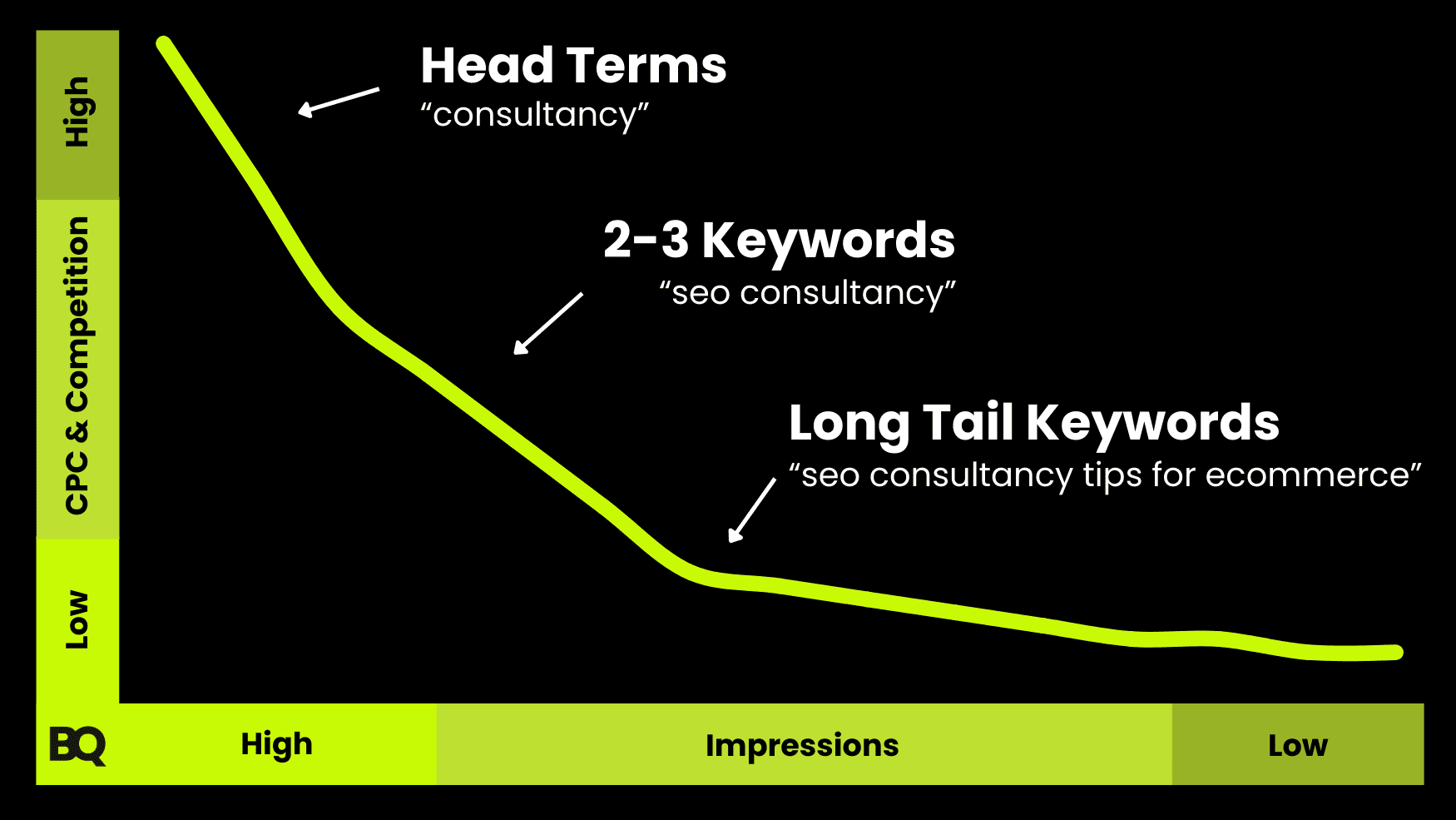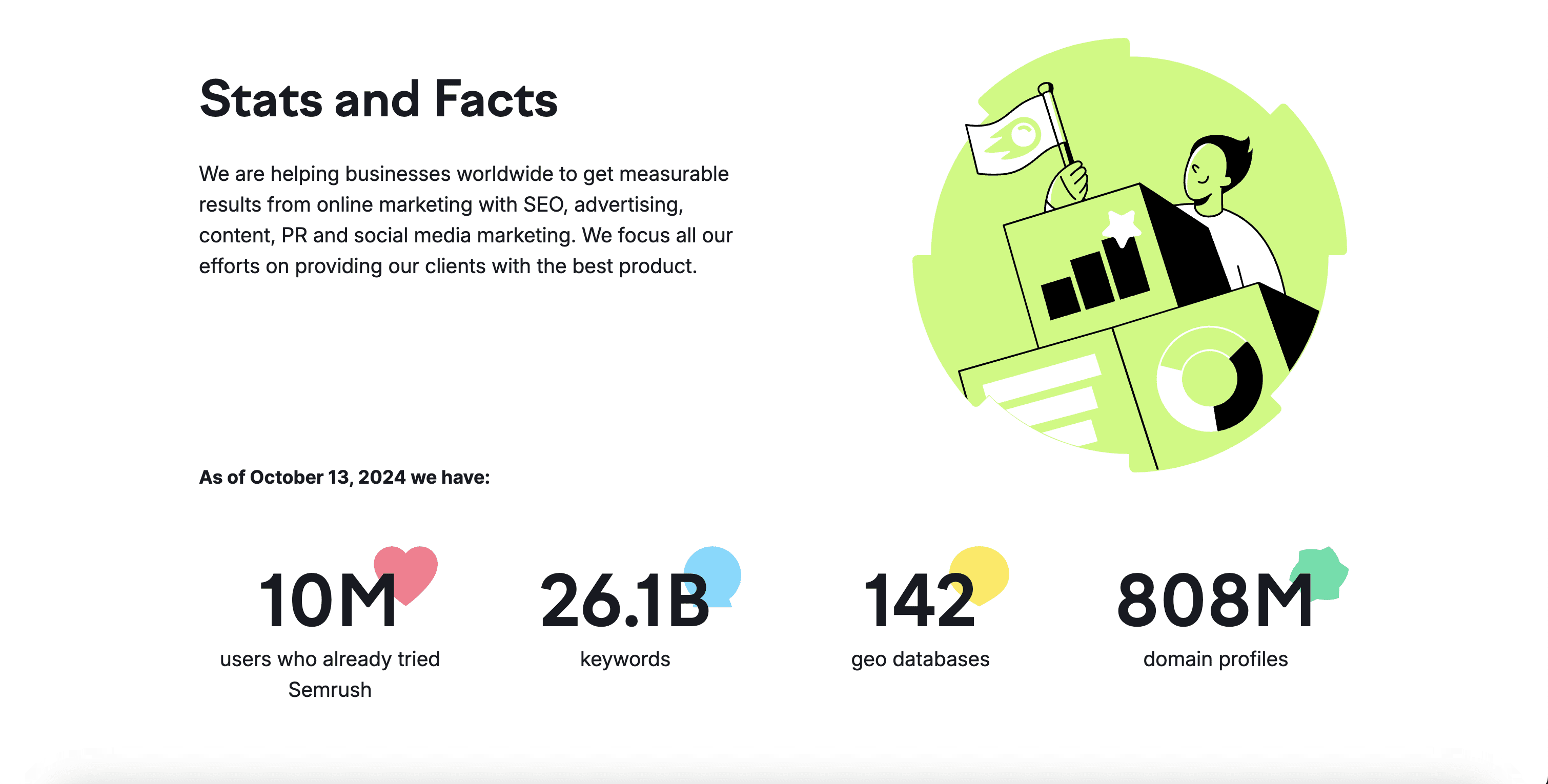As a founder, you wear many hats. You’re a CEO, a salesperson, and even a marketer. If your startup or small business doesn’t have the budget for a full-fledged marketing team, you might feel at a disadvantage when it comes to SEO.
But the truth is, you can implement a solid SEO strategy on your own with the right tools, knowledge, and a DIY mindset.
In this ‘how-to’ guide, we’ll show you how to achieve results with SEO, whether you’re working with a small team or flying solo.
What is DIY SEO?
DIY SEO (Do-It-Yourself SEO) is exactly what it sounds like: optimising your website to improve your search engine rankings without hiring a dedicated marketing team or agency.
While SEO might initially seem intimidating, it’s an approachable discipline if you break it down into manageable tasks. DIY SEO aims to improve your website’s visibility on search engines like Google so potential customers can find you more easily.
The great news is that many aspects of SEO are straightforward to learn and implement. With the right tools, time, and a willingness to experiment, you can significantly improve your website’s search engine performance.
Start with Keyword Research
At the core of every successful SEO strategy is effective keyword research. Keywords are the terms and phrases your potential customers type into Google when searching for products or services like yours. As a founder, you’re in a great position to understand what your customers need, and by using keyword research tools, you can align your content with what they’re searching for.
How to Do Keyword Research
Step 1: Brainstorm Keywords: List the services or products you offer, then think of related terms your customers might use to find them. For example, suppose you run an eco-friendly clothing store. In that case, keywords might include “sustainable fashion,” “eco-friendly clothes,” or “organic cotton t-shirts.”
Step 2: Use Free Tools: Once you have your list, you can validate and expand your keywords using free tools like Google Keyword Planner, Ubersuggest, or Answer the Public. These tools will show you search volumes and keyword difficulty and suggest additional long-tail keywords (phrases with three or more words) that are easier to rank.
Why Long-Tail Keywords Matter
Long-tail keywords tend to be more specific and often signal higher intent. For example, searching for “organic cotton t-shirts for men” is probably closer to purchasing than searching for “t-shirts.” Long-tail keywords are also less competitive, which means you have a better chance of ranking for them as a small business.
Don’t just target high-volume, competitive keywords. Focus on a mix of relevant long-tail keywords that reflect your audience’s specific needs. These are often easier to rank for and can drive more qualified traffic.

Optimise Your Website Structure
The structure of your website plays a significant role in how search engines like Google crawl and understand it. A well-organised website improves user experience and helps search engines rank your pages more effectively. While technical SEO might sound intimidating, it’s manageable with the right approach.
Key Areas to Focus On
Mobile Optimisation: Google uses mobile-first indexing, meaning it primarily considers your site’s mobile version when determining rankings. Use Google’s Mobile-Friendly Test to ensure your site works well on all devices. If not, consider a responsive design update.
Page Speed: Slow-loading websites is detrimental to user experience and SEO rankings. Tools like Google PageSpeed Insights and GTmetrix can show you how fast your site loads and provide recommendations for speeding it up, such as optimising images, reducing redirects, and leveraging browser caching.
Clear Navigation and Sitemaps: Well-organised navigation helps users and search engines find important content on your site. Use simple, clear navigation with descriptive labels. Additionally, submitting an XML sitemap via Google Search Console helps search engines crawl your site efficiently.
Create High-Quality Content: Creating valuable content is at the heart of any effective DIY SEO strategy. The good news is that, as a founder, you’re an expert in your field, giving you a unique advantage. Through content, including blog posts, product guides, or tutorials, you can share your knowledge, solve customer problems, and showcase your expertise.
Content Creation Tips for Small Teams
Focus on User Intent: Write content that addresses your customers’ needs and questions. For example, if you sell organic beauty products, you could write blog posts like “How to Choose the Best Organic Skincare Products” or “The Benefits of Natural Ingredients in Skincare.” This helps users and aligns with Google’s emphasis on high-quality, user-focused content.
Incorporate Keywords Naturally: Keywords are essential, but use them naturally within your content. More content with keywords can improve your rankings and make your writing sound robotic. Aim for a balanced approach by including your primary keyword in your title, introduction, and a few subheadings.
Repurpose Content: Don’t reinvent the wheel with every piece of content. Repurpose existing blog posts into infographics, short videos, or social media posts. This allows you to maximise the value of each piece of content, giving you more exposure without extra effort.
DIY Content Tools
Grammarly (Free and Paid Versions) helps you polish your writing, ensuring it is error-free and readable.
Canva (Free and Paid Versions): Create visual content, such as infographics and social media graphics, to complement your blog posts.
Consistency is key. Start with a manageable content calendar and stick with it, even if just one blog post a month.
Build Backlinks to the Smart Way
Backlinks are links from other websites pointing to your site and are one of the most important ranking factors for SEO. They act as votes of confidence from other websites, signalling to search engines that your content is valuable and authoritative. However, building backlinks can seem challenging without a marketing team. The key is to focus on quality over quantity and leverage existing relationships.
Effective DIY Backlink Tactics
Leverage Partnerships: If you have business partners, vendors, or collaborators, ask if they’d link to your site. You can also offer to write a guest blog post or provide a testimonial in exchange for a backlink.
Guest Blogging: Reach out to industry blogs or websites and offer to write a guest post. This gets you a backlink and positions you as an expert in your field. Ensure the site you’re contributing to is reputable, as low-quality backlinks can do more harm than good.
Submit to Local Directories: If you’re a local business, ensure you’re listed on local directories like Google My Business, Yelp, or industry-specific directories. These backlinks can help improve local SEO and bring in targeted traffic.

Featured.com: is a platform designed to help businesses, startups, and individuals get featured in reputable media outlets, blogs, and podcasts. Its primary use for link building lies in securing high-quality backlinks from authoritative sites, which can significantly boost a website’s SEO.
Track Your Progress and Adjust
SEO is a long-term game; tracking your progress over time is essential to see what’s working and where you need to adjust. Without tracking, you’re flying blind.
DIY SEO tools for tracking SEO performance:
Google Analytics (Free): Google Analytics gives you in-depth insights into how people interact with your site. Track your organic traffic, bounce rates, and user behaviour to understand how well your SEO efforts are performing.
Google Search Console (Free): This tool shows how your site is performing in Google search. You can monitor which keywords drive traffic, identify indexing issues, and track your rankings over time.
Screaming Frog SEO Spider (Free Version): Crawl your site to identify broken links, missing meta tags, and other SEO issues.
Rankmath (Free and Paid Versions): This plugin simplifies optimising meta tags, titles, and sitemaps for search engines if you’re using WordPress.
Semrush (Free and Paid Versions): Offers keyword research, competitive analysis, and site audits. The free version has enough features to get you started. BQC are a top rated Semrush agency partner with a proven track record on the platform.

Stay Consistent and Be Patient
One of the biggest challenges of DIY SEO is that it takes time to see results. While it’s easy to get discouraged, consistency is key. Regularly updating your content, checking your site’s health, and building backlinks will pay off over time.
Remember, SEO is a marathon, not a sprint. Without a marketing team, you can achieve long-lasting results by consistently improving your site, producing valuable content, and staying up to date with best practices.
When to Consider an SEO Consultant for Guidance and Assistance
While DIY SEO is a great way to get started, there might come a time when you need expert guidance to take your efforts to the next level. An SEO consultant can help you identify areas you may have overlooked, provide strategic advice, and streamline the implementation of more complex SEO techniques.
How an SEO Consultant Can Help
Expertise and Strategic Direction: SEO consultants have in-depth knowledge of the latest trends, algorithm updates, and advanced tactics. They can analyse your current efforts and create a tailored search strategy that aligns with your business goals, saving you time and guesswork.
Customised SEO Audits: If you need help determining where your site stands, an SEO consultant can perform a comprehensive SEO audit to highlight technical issues, content gaps, and keyword opportunities. A fresh, expert perspective can identify areas for improvement that DIY efforts might need to catch up on.
Implementation Support: As a founder, juggling multiple tasks can make implementing all the necessary SEO changes yourself difficult. An SEO consultant can assist with optimising on-page elements, improving site structure, and building a sustainable backlink strategy, ensuring everything is done correctly and efficiently.
Ongoing Monitoring and Adjustments: SEO is a dynamic process, and having a consultant on board for continuing monitoring can help you stay ahead of algorithm changes and competitors. Regular check-ins with an SEO expert ensure you continuously improve your rankings and drive traffic.
Utilising an SEO consultant doesn’t mean abandoning DIY SEO. Instead, it’s about finding the right balance where you can handle the day-to-day tasks. At the same time, the consultant focuses on more advanced strategies and troubleshooting. This approach keeps costs low while benefiting from expert advice and specialised tools.

When Should You Consider Hiring an SEO Consultant?
- If your website has plateaued in rankings despite consistent efforts.
- When you’re ready to implement more advanced SEO tactics, such as technical optimisations or competitive analysis.
- If you lack time or expertise to handle SEO-related issues and need a professional to streamline your strategy.
- When you want to ensure your DIY SEO efforts are on the right track and aligned with long-term growth goals.
You can start by booking a one-time consultation to assess your SEO strategy. This gives you actionable insights without committing to long-term service, making it an affordable and effective way to elevate your SEO.
By combining your DIY SEO efforts with occasional professional guidance, you can achieve faster results, avoid costly mistakes, and optimise your strategy for sustainable growth. It’s all about working smarter, not harder.
DIY SEO Wrapped
Implementing DIY SEO without a marketing team may seem challenging, but it’s entirely achievable with the right approach, tools, and mindset.
By focusing on core SEO elements—such as keyword research, content creation, site optimisation, and building backlinks you can make significant strides in improving your site’s visibility.
Remember, SEO is an ongoing process that requires patience and consistency, but the long-term benefits are worth the effort.
If you find yourself needing additional guidance, don’t hesitate to contact us and discuss your marketing. As a consultancy we can provide strategic direction and help you navigate the more complex aspects of SEO while allowing you to focus on what you do best—growing your business.
Whether you go the DIY SEO route or combine it with expert assistance, your commitment to SEO will set your business up for sustainable success in the digital landscape.



